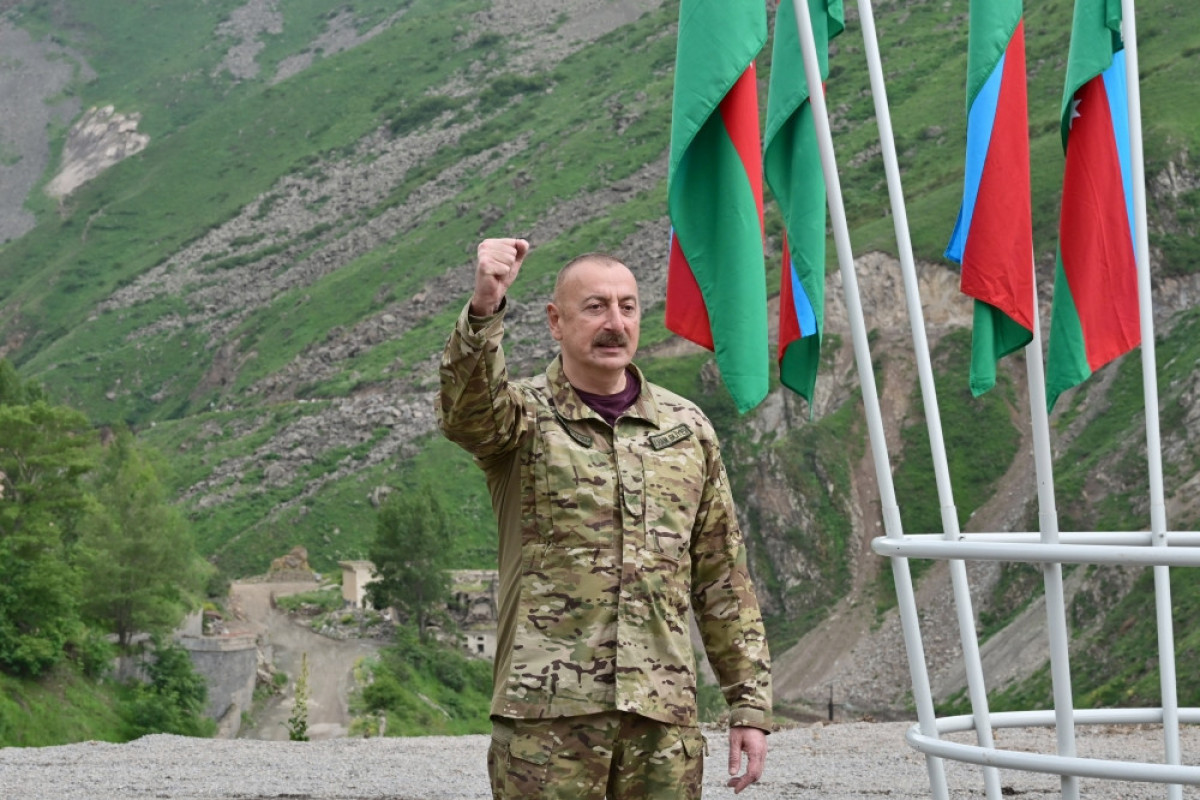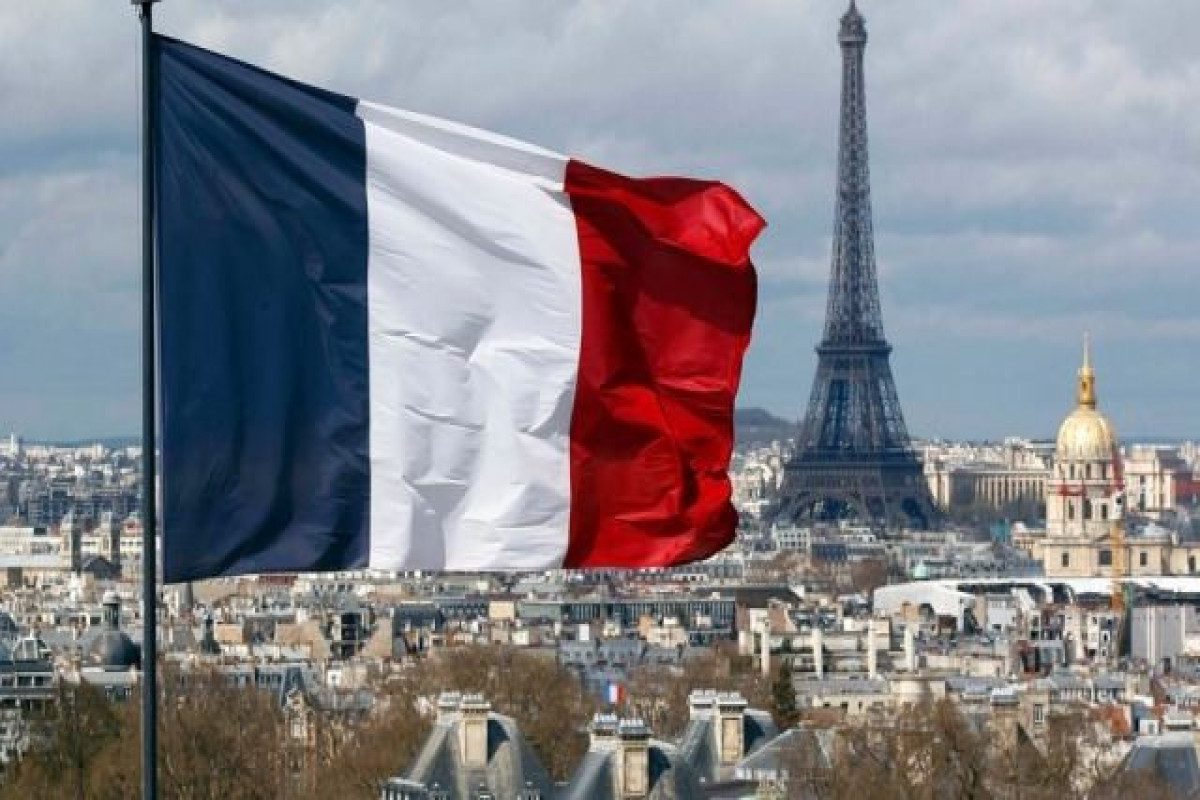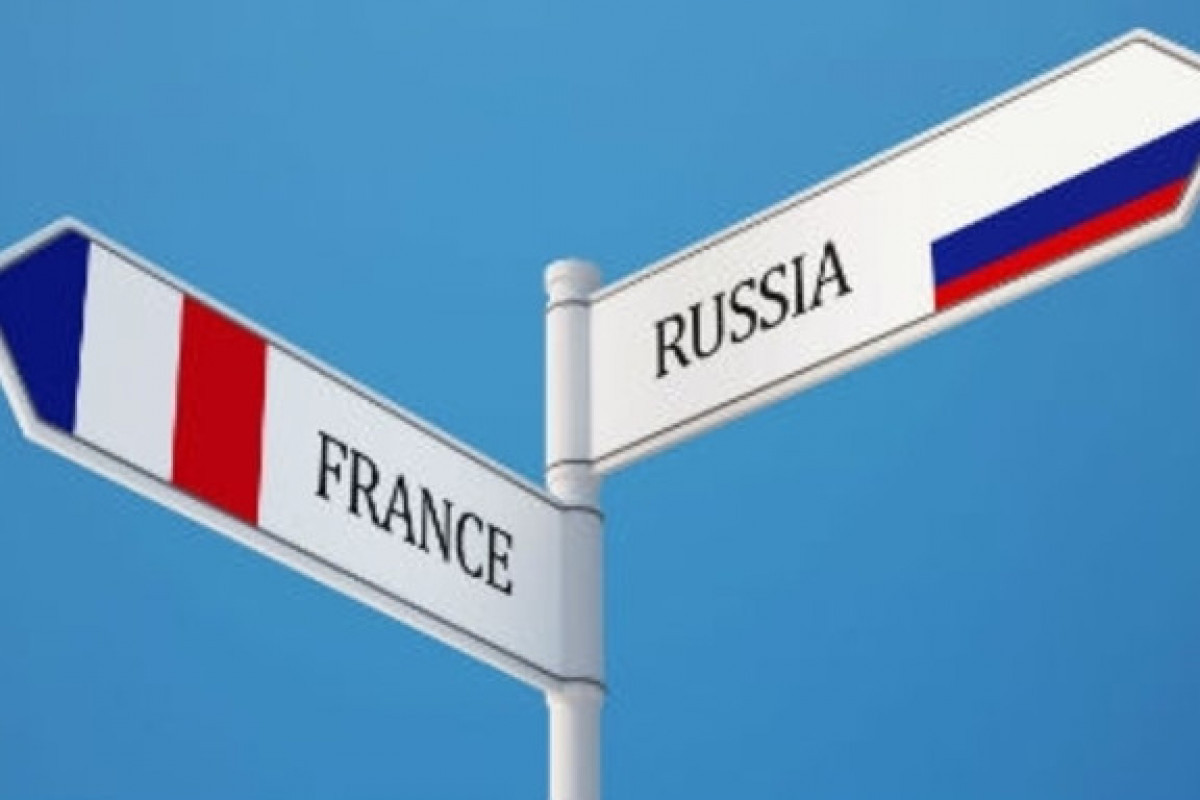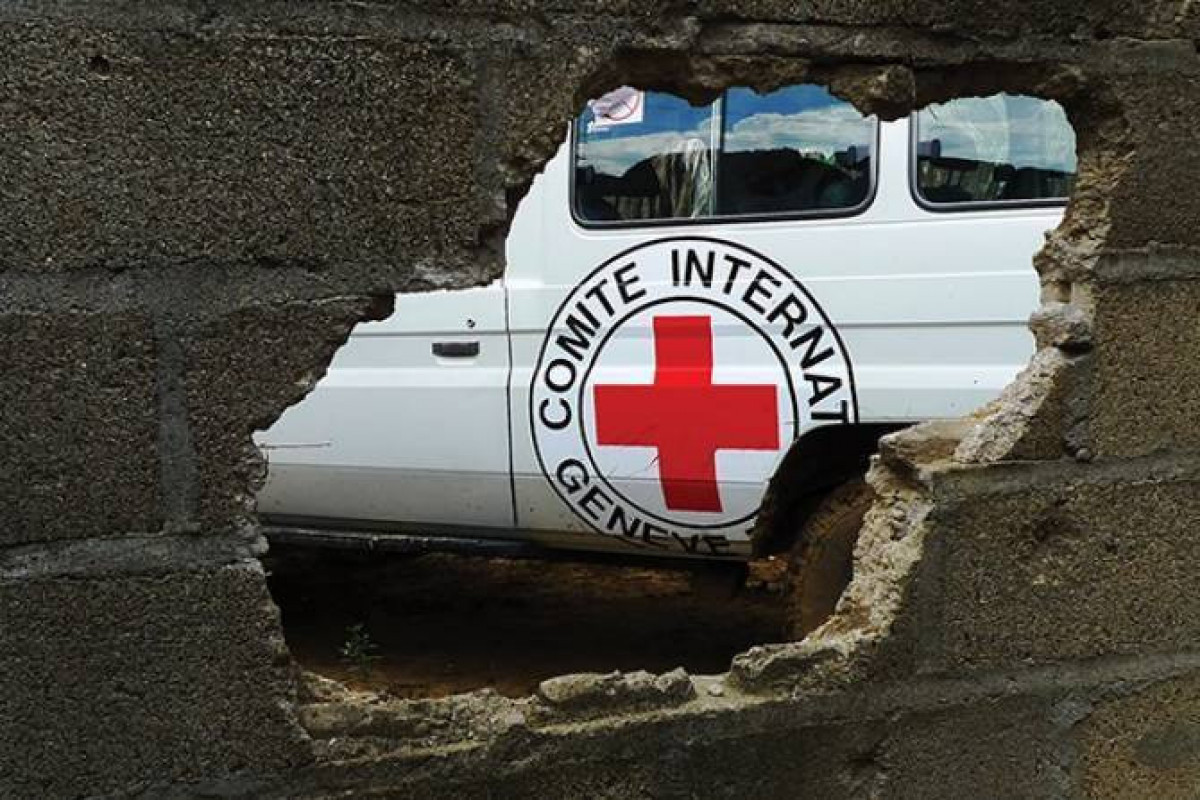Istanbul. Mayis Alizade – APA. 10 years ago, in Turkey it was spoken about the availability of raising "genocide" claims in the context of freedom of speech and expression, but not about "normalization" of the relations with Armenia. Ter-Petrosyan positively responded to President Turgut Özal, who attempted to establish diplomatic relations between the two countries, intending to open the Turkish Embassy in Yerevan and even defining the person to lead the Embassy, but the sudden death (17 April, 1993) of Özal prevented the realization of this plan. It seems that Kalbajar’s occupation by Armenia had a negative impact on the plans of Özal, as he didn’t hesitate to make statements like “We will hold exercises on the border, it doesn’t matter if 2-3 projectiles hit that side” at Ankara airport while traveling to the Turkic-speaking states a week after the occupation (the leaders of the Armenian community in Turkey never forget Özal’s these words).
In response to the occupation of Kalbajar, the Demirel government the closure of the Turkish-Armenian border (the decision was announced by the government spokesman Ali Gönen). When Tansu Çiller was a Prime Minister, Turkey attempted to “gain over” Ter-Petrosyan through leader of Nationalist Movement Party Alparslan TurkeÅŸ, but the meeting between TurkeÅŸ and Petrosyan organized by the Turkish Armenian through Ambassador in Paris Tanju Bledag failed. When elected President in 1998, Robert Kocharian put an end to all attempts to establish any relation with Turkey. Kocharian, who refused to attend the NATO summit in Istanbul in June, 2004 for its being held “in enemy country”, but Foreign Minister Vardan Oskanian told me at the summit that they could start negotiations with Turkey without any precondition in case of not bringing up the Armenian-Azerbaijani conflict and unconditional opening of the border. Saying that they can accept Turkey’s mediating in the negotiations with Azerbaijan in the Armenian Patriarchate, Oskanian said after a day in his interview to me that “the trilateral talks via Turkey that is a fraternal country to Azerbaijan is impossible in the region, as fraternal relations between Turkey and Azerbaijan would impede an objective start and progress of negotiations.
Kocharian's hostility against Turkey continued until his resignation as president. With a letter sent by Prime Minister ErdoÄŸan to Kocharian, Ankara has responded to the pressure tactics, which at that time Armenia and the Armenian lobby in the West wanted to use against Turkey: Just as Tayyip ErdoÄŸan proposed in his letter to Kocharyan that the issue of “genocide” should be entrusted to a commission including scientists from the two countries as well as neutral researchers from around the world and Kocharyan gave no response to the letter, the issue of the closed border also did not come to anyone’s mind in discussions and disputes that lasted till the autumn of 2006 across the country. By late 2006, the issue of “genocide” became a low priority for everyone. Former Foreign Minister YaÅŸar Yakış, whose comments I would refer to very often, used to keep on repeating the following words: We deal with these affairs when tension is running high, then we forget them. So we need to more cold-bloodedly deal with these issues while they are not on the agenda.
When the parliament elected Abdullah Gül as president in 2007, Ali Babacan became the foreign minister of the new government; Gül was determined to make his own weight in foreign policy noticeable, while Ahmet DavutoÄŸlu who was counseling both the foreign minister and the prime minister by that time has begun to play his own role, coming out of the background, yet in an influential and active manner. Sargsyan taking over power in Armenia in 2008 so seemed to many in the West and some in Turkey who were invited to this affair that crucial steps can be taken with Sargysan to normalize Turkey-Armenia relations. The first call in this respect came from the West; the deputy head of the U.S. Department of State executive office called on the Turkish and Armenian leaderships to normalize relations. It didn’t take too long for works underway in this regard to be uncovered. In parallel with Prime Minister ErdoÄŸan making a visit to Moscow and offering the Kremlin the Pact of Peace and Cooperation for the Caucasus in 12 August in relation to the Russian attack on Georgia in 8 August 2008, the propaganda “rapprochement with Armenia” was started in society. While then-Foreign Minister of Georgia Eka Tkeshelashvili on August 31 and Russian Foreign Minister Sergei Lavrov on September 2 were discussing the Georgian crisis with Foreign Minister Ali Babacan in Istanbul, Turkish media had completely focused on President Abdullah Gül’s one-day visit to Yerevan on September 6. President Gül’s visit to Yerevan with the parole “We’re children of the same lands” to watch a football match was organized by Ahmet DavutoÄŸlu and the Turkish columnists accompanying the president during his visit focused their keyboard slogans on Ahmet DavutoÄŸlu. 30 minutes of our one-hour meeting with President Gül on September 8 in the Çankaya residence were dedicated to the interview to APA and the other 30 minutes to exchange of ideas. When European journalists pushed Turkish Foreign Minister Gül into a corner to during a briefing held for foreign journalists in Istanbul on 22 April 2005 urging the Turkish government to pay “compensation to the descendants of the Armenians”, Mr Gül said, “We have no information about that”, looking at a note his counselor was handing to him, upon my question “The Armenian Parliament held a two-day meeting. Defense Minister Serzh Sargsyan voiced unspeakable insults against Turkey. Is it possible for you to carry on your intention of rapprochement with Armenia anyway?”
In response to my question, “This initiative of yours is recommended and directed by the West, or it’s your personal attempt or part of the state policy?”, during our last talk in Çankaya, President Gül said, “These are my good will initiatives. Rest assured that the issue of occupied Azerbaijani lands will continue to remain as long as it’s frozen. If don’t take necessary actions now, the problem will turn out to be a dilemma. I want peace and welfare in the region”.
- A day before you, Sargsyan was in Moscow. Did he tell you anything about your visit? And do you think your good will initiative will somewhat be able to divert Yerevan from the Kremlin on which Armenia is so heavily dependent on and draw it to this side?
- He said nothing about that. Do Azerbaijani media criticize me because of that initiative of mine? I could cross the border by car through Kars, but caring solely about Azerbaijan’s interests and in order not to cause controversy over the border, I didn’t do that. I had my service car sent to Yerevan over Tbilisi. About the border issue, I will insist on both the withdrawal of Armenian troops from Azerbaijan’s occupied lands as well as them refraining from claims against Turkey. The dialogue was such.
“Along with these statements of President Gül, Senior Counselor DavutoÄŸlu was trying to explain to the West that a car moving from Ganja going to Europe from Armenia to Turkey through the Lachin Corridor will not remain as a dream. As a result, President Gul’s one-day trip to Yerevan as part of football diplomacy caused some resentment in Baku, while it was forgotten in Turkey, because the sides also agreed upon Serzh Sargsyan going to Bursa to watch the Turkey-Armenia match on November 14, 2009. In December, Foreign Minister Babacan met with his Armenian counterpart Nalbandyan in Istanbul. And after Nalbandyan made a statement at a press conference that relations would be normalized without any precondition, I asked the question “Dear minister, are you opening the border?” upon which Babacan said, “We’re going to be late for the plane”.
In the autumn and winter of 2008, having born secret or obvious process Azerbaijan finally run out of its patience after a claim was spread in media in February 2009. The claim was that Turkey had excluded the Karabakh issue from its agenda in secret talks with Armenia. Tension over developing relations between the two countries reached a climax with President Ilham Aliyev boycotting the summit “Alliance of Civilizations” hosted by Istanbul in early April. Mr Aliyev rejected his invitation to Istanbul despite the insistence of President Gül, Prime Minister ErdoÄŸan, U.S. Secretary of State Clinton and Obama, who was in Turkey at the time, wanting to join the meeting. Making his first international visit to Turkey, remaining true to his electoral promise, Obama delivered a speech at the country’s parliament on April 9, stressing the importance of “normalization” of Turkish-Armenian relations and Turkey’s “facing” its history. During the meeting with Armenian FM in Istanbul, he noted the importance of “normalization” of Turkish-Armenian relations.
While Azerbaijan's resentment continued, Prime Minister ErdoÄŸan changed the structure of the government on May 1, appointing Ahmet DavutoÄŸlu as Foreign Minister though he was not a member of the Parliament and it was not common in the management of the Turkish parliament. Political analysts close to the government characterized this case as “an active role given to the main performer of the plans that the West intended to implement in the region”. Taking into account that the step to be taken without the consent of Azerbaijan in the Caucasus region will cause a strong reaction not only from Baku, but also the entire Turkic community, ErdoÄŸan arrived in Baku along with several influential members of the government. By drawing a red line during his speech in the Azerbaijani Parliament on May 14 in connection with “the future of Turkish-Armenian border", he clearly demonstrated Turkey’s position and gave promise to Azerbaijan: Opening of the Turkish-Armenian border depends cause-and-effect relationship. The reason for the closure of the border is the occupation of Azerbaijani lands by Armenia. And opening of the border will be possible as a result of the liberation of the occupied lands.
Since that day, Armenia and the Armenian Diaspora have been trying to mislead the world community describing ErdoÄŸan's statements as “Turkey transferring its Armenian policy to Azerbaijan in the mortgage”. Despite ErdoÄŸan's famous speech, holding of secret meetings for "normalization" of Turkey-Armenia relations in summer would be revealed in late August.
Analysis about the most "critical" point of the processes, namely the Zurich protocols and the new period that Azerbaijan will start to dominate will be available in the next article…





 ANALYSIS'>
ANALYSIS'>
